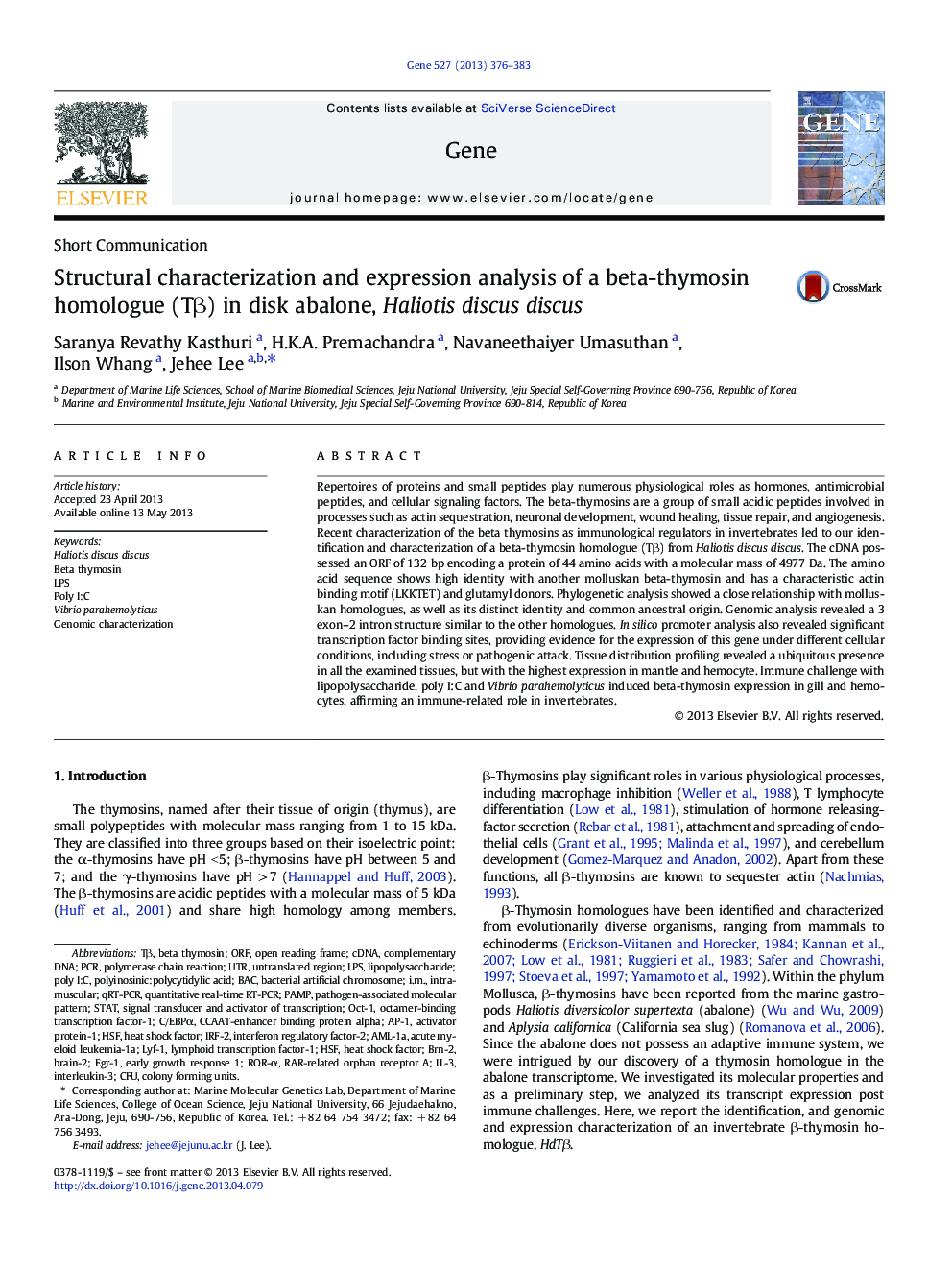| Article ID | Journal | Published Year | Pages | File Type |
|---|---|---|---|---|
| 5906317 | Gene | 2013 | 8 Pages |
â¢HdTβ protein possessed potential actin binding motif.â¢Genomic structural characterization revealed conserved 3 exon-2 intron structure.â¢Promoter analysis revealed significant transcription factor binding sites.â¢Tissue distribution profiling showed highest expression in hemocytes and mantle.â¢HdTβ was upregulated in gill and hemocytes post-LPS, poly I:C & bacterial challenge.
Repertoires of proteins and small peptides play numerous physiological roles as hormones, antimicrobial peptides, and cellular signaling factors. The beta-thymosins are a group of small acidic peptides involved in processes such as actin sequestration, neuronal development, wound healing, tissue repair, and angiogenesis. Recent characterization of the beta thymosins as immunological regulators in invertebrates led to our identification and characterization of a beta-thymosin homologue (Tβ) from Haliotis discus discus. The cDNA possessed an ORF of 132 bp encoding a protein of 44 amino acids with a molecular mass of 4977 Da. The amino acid sequence shows high identity with another molluskan beta-thymosin and has a characteristic actin binding motif (LKKTET) and glutamyl donors. Phylogenetic analysis showed a close relationship with molluskan homologues, as well as its distinct identity and common ancestral origin. Genomic analysis revealed a 3 exon-2 intron structure similar to the other homologues. In silico promoter analysis also revealed significant transcription factor binding sites, providing evidence for the expression of this gene under different cellular conditions, including stress or pathogenic attack. Tissue distribution profiling revealed a ubiquitous presence in all the examined tissues, but with the highest expression in mantle and hemocyte. Immune challenge with lipopolysaccharide, poly I:C and Vibrio parahemolyticus induced beta-thymosin expression in gill and hemocytes, affirming an immune-related role in invertebrates.
